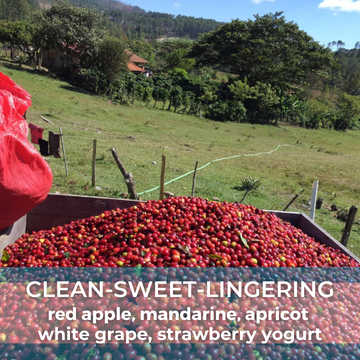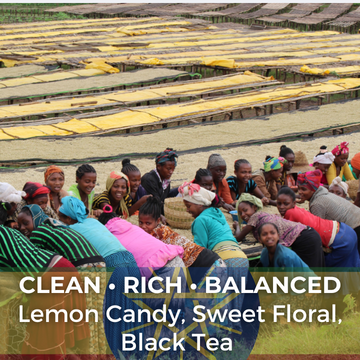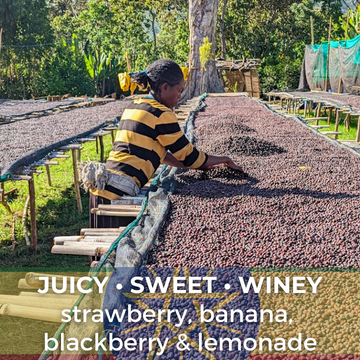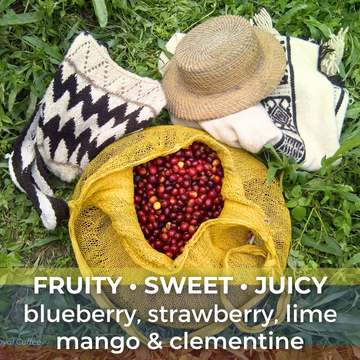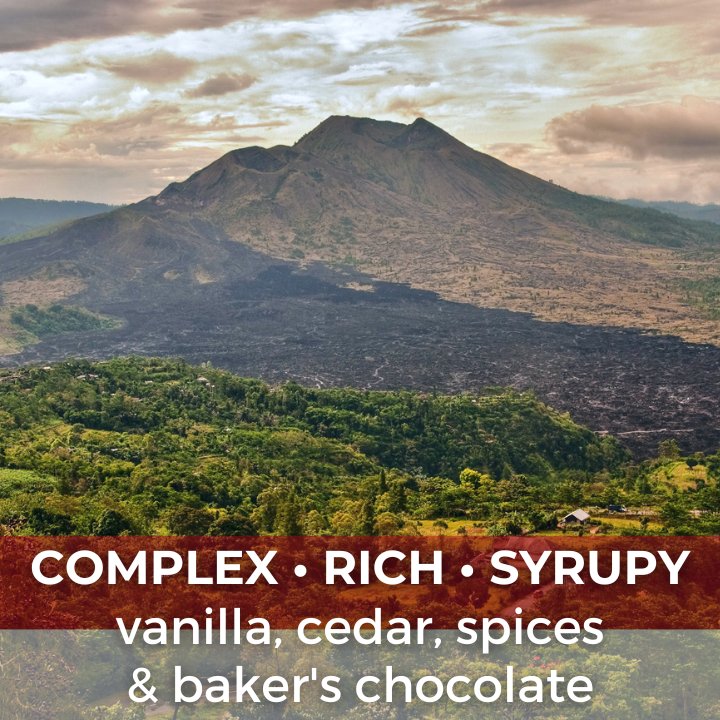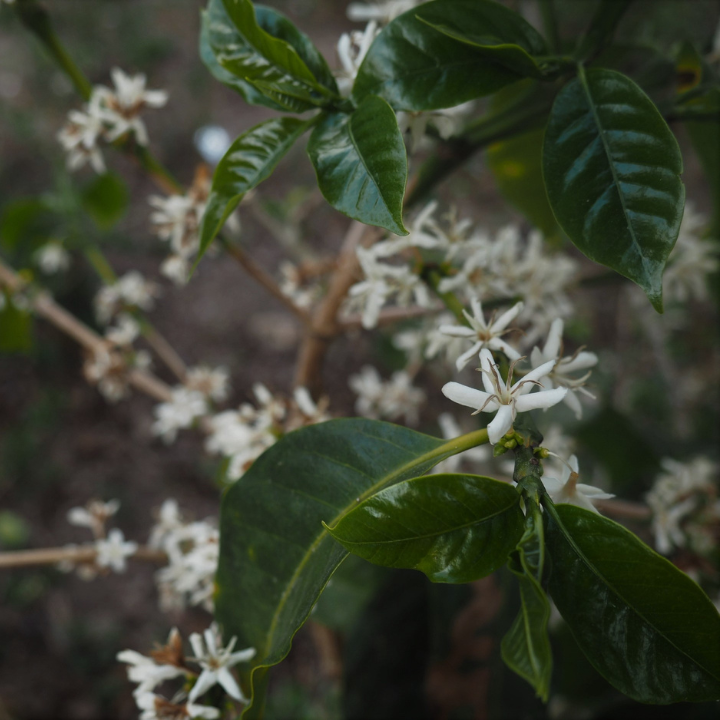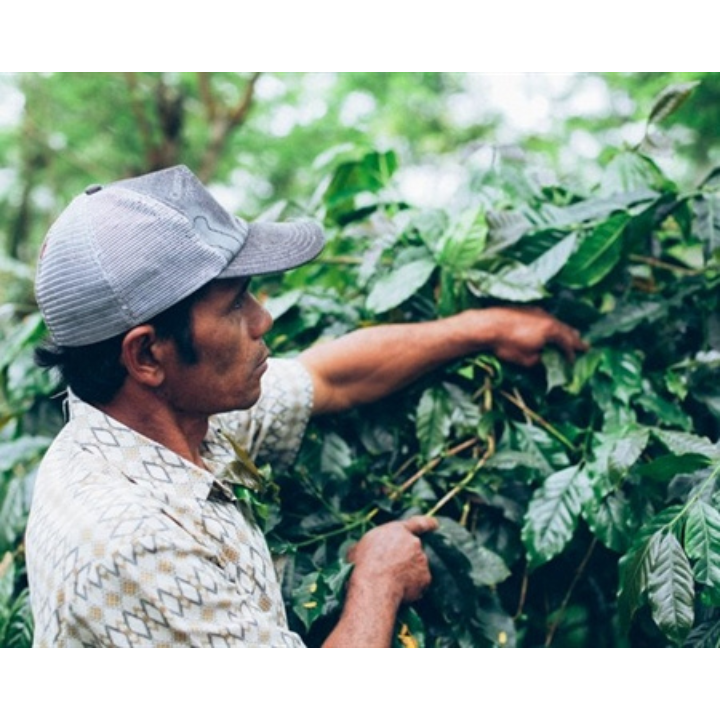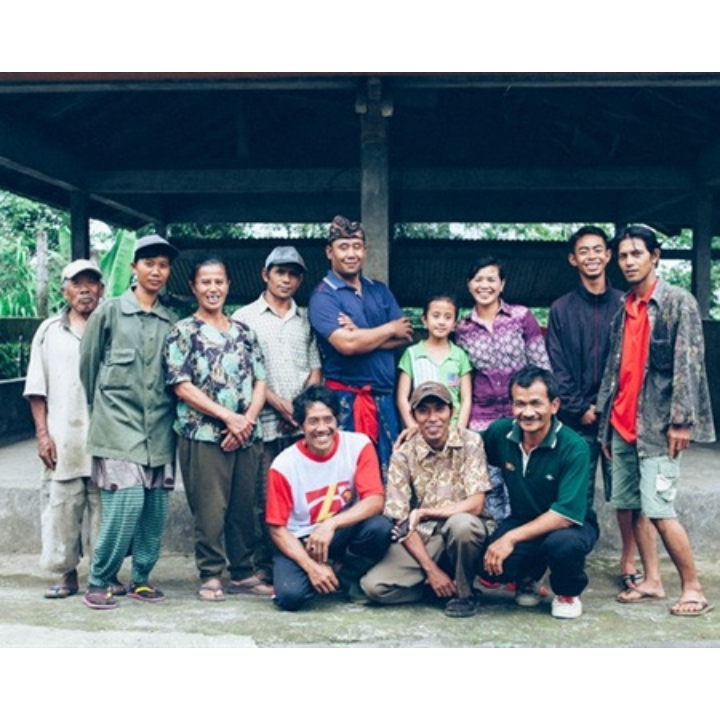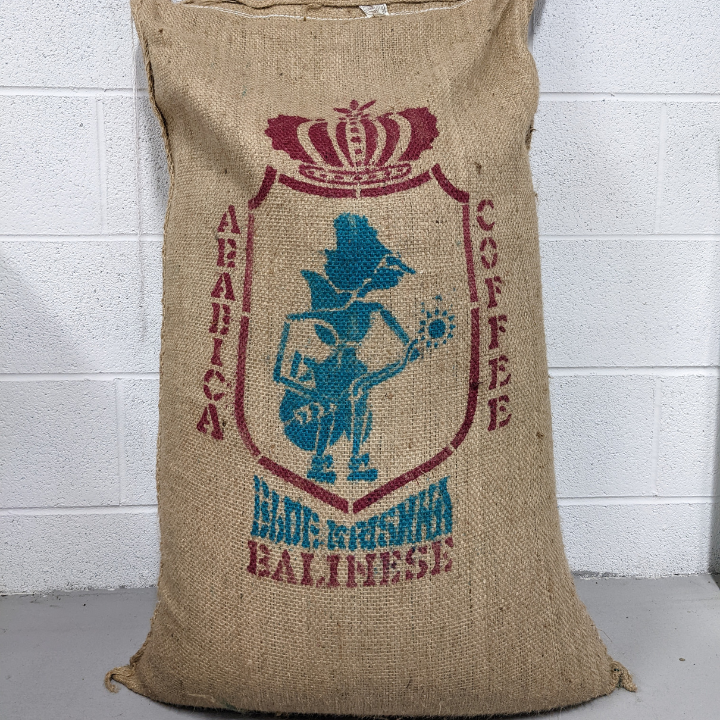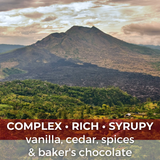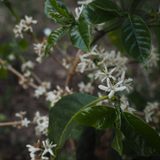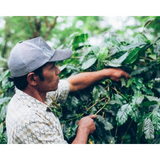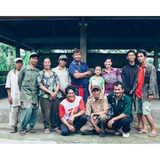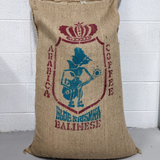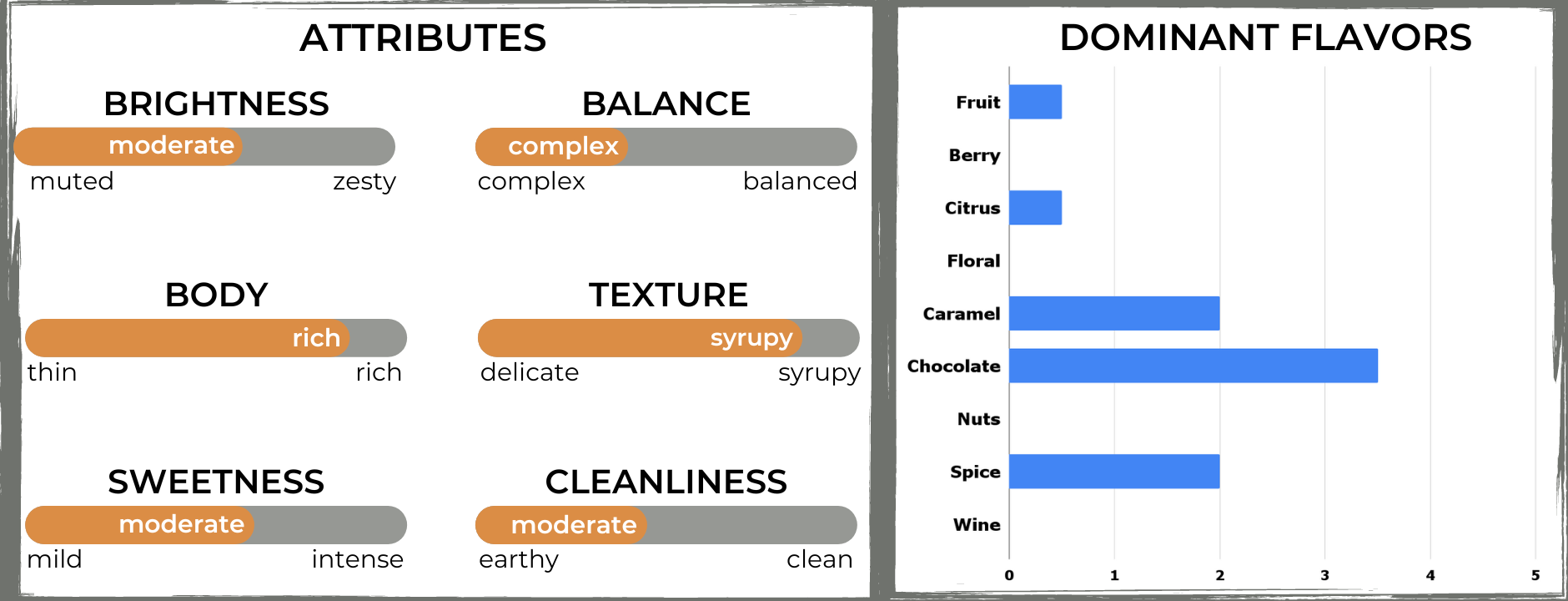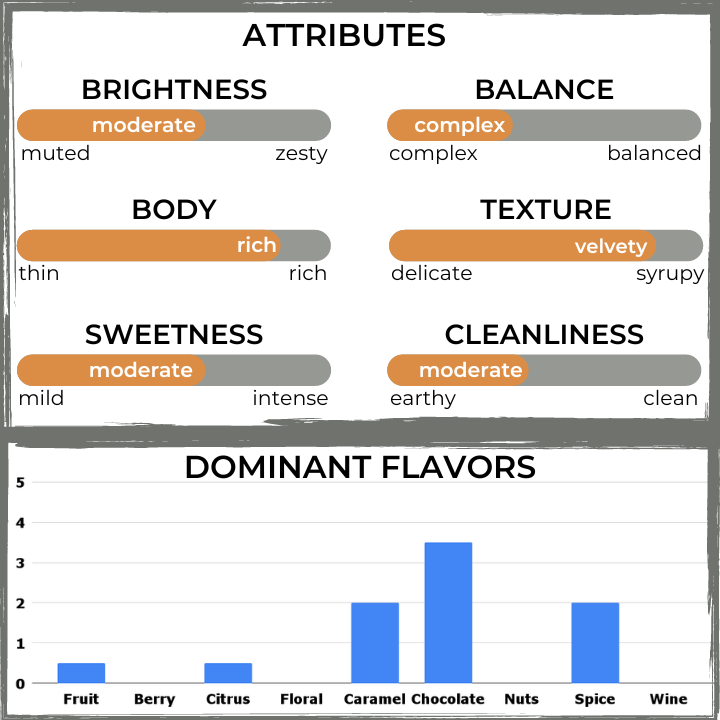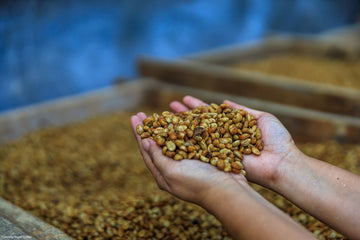Bali Blue Moon Organic
Named for the distinctive bluish green color imparted to the beans by the traditional local processing method, this coffee is consistently one of our most popular offerings. Big, bold and syrupy it's got generous notes of baker's chocolate with a touch of vanilla and an undertone of warm cedar and baking spices.
Much of the coffee in Indonesia is processed using a local traditional processing method called “Gilig Basah” which is commonly known as wet-hulling. This unique processing results in coffee beans with a distinctive dark bluish green color. That’s why the local producers call this delicious coffee “Blue Moon.” Wet-hulling also imparts a distinctive flavor profile: low acidity, complex woody earthiness and spices like pepper, cinnamon and black pepper. Bali Blue Moon is no exception but something about the local growing conditions and careful farming practices cleans up this profile a bit. Think of it as Sumatra but with the edges rounded off! It’s just a bit brighter, a touch sweeter and a little cleaner.
This coffee is sourced from family owned farms located in the Kintamani highlands on the island province of Bali, Indonesia. Coffee is grown in the volcanic soils of Mount Agung along with citrus trees that provide shade and another source of income. Coffee production is typically organized around a Subak Abian, which refers to the ecologically sustainable irrigation systems developed more than 1,000 years ago by Hindu priests who practice Tri Hita Karana (the three sources of prosperity), a philosophy focused on the harmonization between the environment, humans and God. Additionally, it should be noted that while this coffee isn’t certified organic, the use of pesticides on the island is prohibited and all fertilizers used growing this coffee are 100% organic!
Reminder! This coffee is raw, you must roast it before brewing
Arrival Date: January 9th, 2024. US Arrival: November 2023
Acidity & Brightness: Moderate acidity, slightly sweet.
Balance & Finish: Fairly complex with a gently spicy finish
Body & Texture: Huge body, syrupy
Flavors: Baker’s chocolate, cedar, vanilla & baking spices
Grade: Very hard and dense, grown at 1200-1600 meters
Processing: Wet-hulled (Gilig-basah)
Grower: Coffee producers organized through Subak Abian (SA) a traditional structure of farmer organization in upland Bali
Region: Kintamani Highlands of Central Bali, Indonesia
Varieties: Bourbon, (S795 & USDA 762) Typica, and Catimor
Recommended Roast Range: Full City to Vienna (Medium to Dark)
Start at Full City (medium, right at the very beginning of second crack) and work your way darker if you like. Darker will bring out stronger notes of baker’s chocolate which will turn bittersweet at Vienna as well as accent spices at the loss of vanilla. Medium roasts will exhibit a bit more earthy complexity. Be advised, like most wet-hulled coffees, this coffee will appear lighter and less oily than its actual roast level right after roasting. It should darken up after a day or two of roasting!
Royal Coffee - "The bulk of Bali’s coffee production comes from small family-owned farms where each producer uses a few acres to cultivate coffee along with citrus trees in the volcanic soils of Mount Agung’s Kintamani highlands. They carefully sort their harvested cherries before depulping and fermenting overnight with their own micro-mills. Then the coffee is washed and laid out on patios to shed the excess water from the coffee parchment. Next the coffee takes a detour from the conventional path of processing in other origins, wherein, the coffee parchment is removed while the coffee still has a high moisture content. This wet-hulling process or Giling Basah leaves the coffee bean exposed while drying on patios to a moisture percentage acceptable for export and gives the beans their distinct bluish color. Balinese producers continue to maintain a traditional rural lifestyle organized around a Subak Abian, which is a reference to the ecologically sustainable irrigation systems developed more than 1,000 years ago by Hindu priests who practice Tri Hita Karana (the three sources of prosperity), a philosophy focused on the harmonization between the environment, humans and God. These traditions are followed in coffee cultivation, which means pesticides and synthetic fertilizers are never used. In recent years, local producer groups have begun to partner with regional exporters like Indokom. Indokom collaborates with producers to overcoming logistical challenges like rugged roads and lack of infrastructure. Indokom provides logistics and milling facilities, which improves traceability and quality control throughout the post-harvest process, as well as, the ability to swiftly bring the coffee to the international market, ensuring greater producer earnings from direct trade relationships.”
